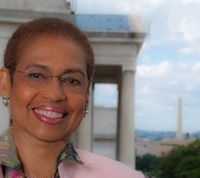California Introduces First-in-the-Nation Amendment to Recognize Housing as a Human Right
Sacramento, CA – RealEstateRama – California became the first state in the country to officially propose amending their constitution to recognize the human right to housing. President Franklin Roosevelt first proposed recognizing housing in his “Second Bill of Rights” speech as part of addressing the Great Depression, and now, on the brink of a COVID-induced economic crisis, in a state already suffering from an acute housing crisis, it is particularly timely for California to be taking this step to fulfill Roosevelt’s promise today.
The proposed amendment was spurred by the actions of the Moms 4 Housing in Oakland, who brought new attention to the rallying cry for the human right to housing long shared by homeless and housing-insecure communities across the country and globe. The Justice Collaborative Institute, Moms 4 Housing, and Data for Progress released new polling yesterday showing 66% of Californians—including 54% of those identifying as Republicans—support an amendment ensuring the human right to housing.
“There are over 150,000 people in this state experiencing homelessness, and it is unjust, inhumane, and cruel for the government to continue to fail to provide real solutions,” said Carroll Fife, director of the Oakland office for Alliance of Californians for Community Empowerment and a representative of Moms 4 Housing. “No one should have to go without a home, now more than ever, and California must urgently take bold steps because if every person has a right to life, that must include a right to a home.”
The bill language was developed through the assistance of the National Law Center on Homelessness & Poverty (Law Center) and Alliance of Californians for Community Empowerment (ACCE) in collaboration with Assemblymember Rob Bonta’s (D-18) office. The Law Center has been working to develop the legal and policy framework as well as the grassroots movement for the human right to housing since 1996.
“The COVID-19 crisis has made clearer than ever that housing is not only a human right, it is also essential to our public health,” said Maria Foscarinis, Founder and Executive Director of the Law Center. “We’re proud to help make the human right to housing a reality in the state of California, and to support the growing movement for it across the country. We look forward to the day all Americans can enjoy this fundamental
Assembly Constitutional Amendment 10 (ACA-10) states: “The fundamental human right to housing is hereby declared to exist in this state. This right ensures access to adequate housing for all Californians. This right is exclusively enforceable by a public right of action. It is the shared obligation of state and local jurisdictions to respect, protect, and fulfill this right through progressively implemented measures, consistent with available resources, within an aggressive but reasonable time frame.”
“Recognizing the human right to housing in the constitution does not mean that California must build a single-family house with a white picket fence for every person and give it to them free of charge, but it’s not empty rhetoric either,” said Eric Tars, Legal Director at the Law Center. “The right to adequate housing requires some immediate actions—like making sure every person experiencing homelessness has access to individual housing to be able to safely shelter-in-place through the current COVID crisis—as well as a clear plan for future actions and accountability for executing that plan, in order to ensure long-term, society-wide, enjoyment of this right. To boldly fight our way out of the coming COVID-induced Depression, we will need the same vision and values FDR used to get us out of the Great Depression, and that starts with the right to adequate housing.”
For more information, see our fact sheet and other resources on housing as a human right.
###
The National Law Center on Homelessness & Poverty (the Law Center) is the only national organization dedicated solely to using the power of the law to prevent and end homelessness. With the support of a large network of pro bono lawyers, we address the immediate and long-term needs of people who are homeless or at risk through outreach and training, advocacy, impact litigation, and public education.
Contact: Crys Letona
Communications Associate

















